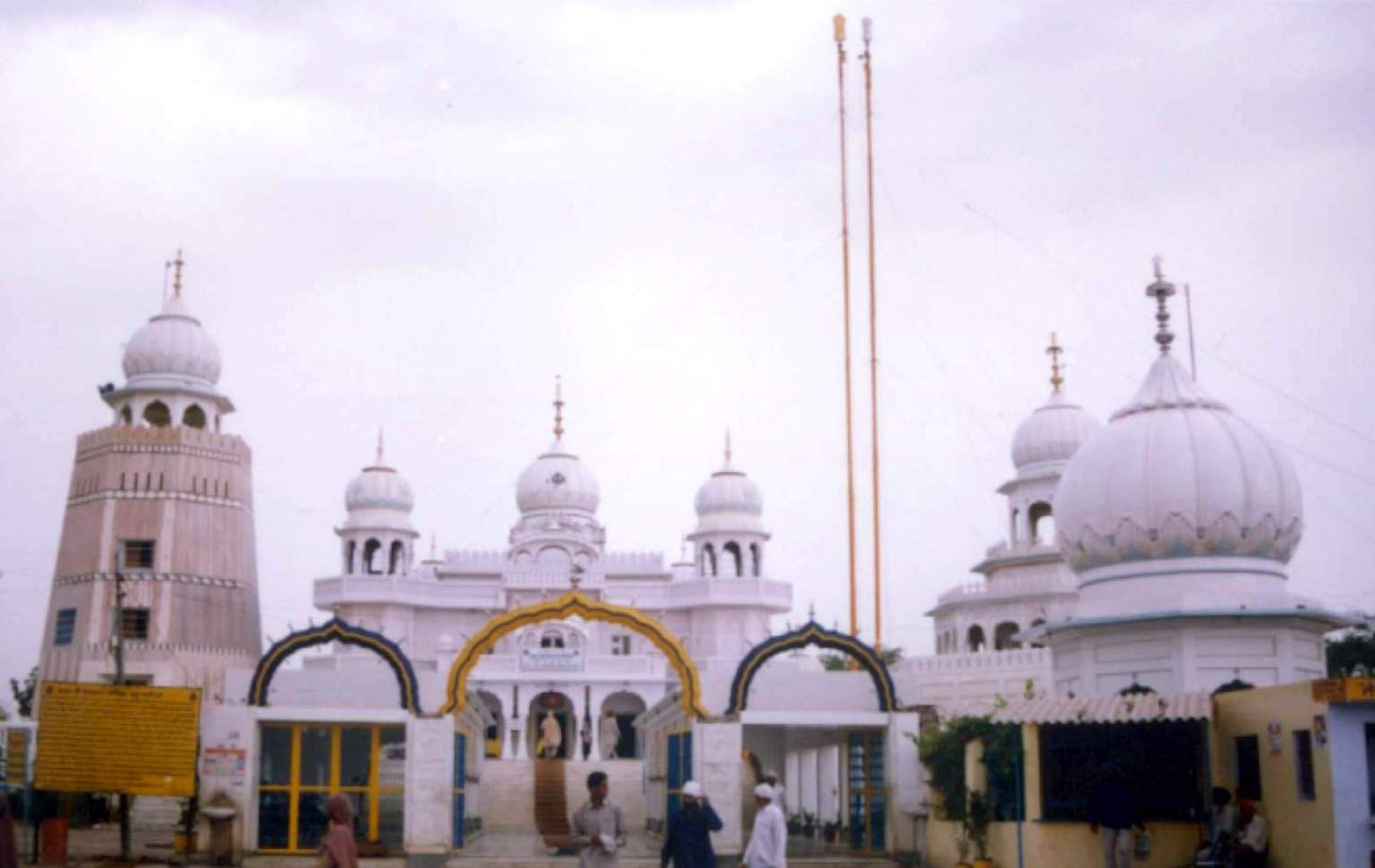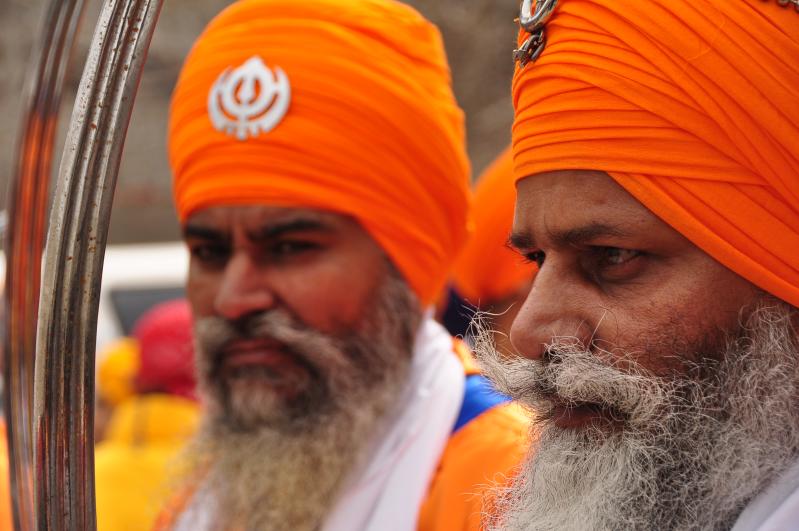Main Page
Welcome to SikhiWiki,a free Sikh Encyclopedia and learning tool...
... with 6,364 articles on Sikhism; total hits on this page
of 2,021,515+ & [[Google 2010|total of Template:NUMBEROFVIEWS pages viewed at the site.]] Sat Sri Akal, Waheguru ji ka Khalsa, Waheguru ji ki Fateh |
| Wednesday October 8, 2025 |
|
Bhai Santokh Singh, (1787 - 1843) the noted author of six important literary works - Naam Kosh, Guru Nanak Parkash, Garb Ganjni Teeka, Balmik Ramayan, Atam Purayan Teeka and his magnum opus, Sri Gur Partap Suraj Granth aka Suraj Parkash, was born on 8 October 1787. He was the son of Bhai Deva Singh and Mata Rajadi, professional cloth printers of Nurdin village, also known as Sarai Nurdin, 7 km northwest of Tarn Taran in Amritsar district of the Punjab, India. His father, though poor, was educated and well versed in the sacred texts. He sent his son, after preliminary education at home, to Amritsar where he became a pupil of Giani Sant Singh (1768 - 1832), a renowned man of letters and custodian of Sri Darbar Sahib. After having studied Sikh Scripture and history, Sanskrit language and literature, poetics, philosophy and mythology at Amritsar for about 15 years, Santokh Singh moved to Buna, an old town on the right bank of the Yamuna in the present Yamuna Nagar district of Haryana, some time before 1813. There he established himself as a writer, poet, and preacher. .....More "Without compassion there is no religion" is a central belief of the Sikhs. The sanctity of this world is held in place by dharam (path of righteousness) which in turn is a product of compassion or daya. Without compassion, this world would turn into hell and neither justice nor righteousness could be found anywhere. The Sikhs consider the Guru a divine spirit which can guide and provide instructions on how to become a better person and a useful member of the sane and saintly society. In the Guru Granth Sahib, the "holy book" of Sikhism, is found the following Shabad or sacred verse:
Did you know...
Once there was no rain in a particular area for an extended period resulting danger to the crops. In some areas, the crops had already been destroyed. So the local people of that area decided to do Ardas - a prayer or supplication to God so that their crops may be saved. Many hundreds of people gathered together at the designated place for this Ardas. While this gathering was in progress, a passing Sikh Saint stopped by. He asked one of the crowd why there was such a big crowd gathered and what was the purpose of the gathering. One of them told the Sikh Saint that that they had gathered here to do Ardas because the crops will be destroyed in the absence of rain; they were going to ask God for rain. The Saint said that was a good thing that they were doing an ardas but he did not see anyone carrying an umbrellas or "barsatie" (rain coats)…. When Waheguru (God) accepted your Ardas then there will be lot of rain. One group leader laughingly said, "But we do not know whether it will rain or not." The Saint said, "How will your Ardas be accepted when you do not have faith in Waheguru" . He told them all to go home .
Daulat Rai, an Arya Samajist was living in India during the late 1800's and the early part of 1900's. He was so disturbed by the publication of books by some Hindu activists whose writings maligned the Sikh Gurus that he was forced to pick up the pen himself. The now famous book: "Sahib-e-Kamal (par excellence) Guru Gobind Singh" was written by him. In his book he reminded Punjabi and Hindus of the humiliation and degradation to which their ancestors were subjected under Mughal rule before the Khalsa liberated them. Quoting various historical sources, he wrote:
|
Recent articlesPopular articlesSikhi FAQ...
| ||||||||||||||||||||||||||||||||||||||||||
Template:2025/10 Template:2025
| Popular Articles on Sikhi Wiki |
|
Mool Mantar | Japji | Sikhism | Dasam Granth | Kirtan | Beliefs | Bani | Gurus | SGGS | Bhai Manjh | Vegetarianism | Bhagat Sain | Bhagat Dhanna | Today | Blogs |
















